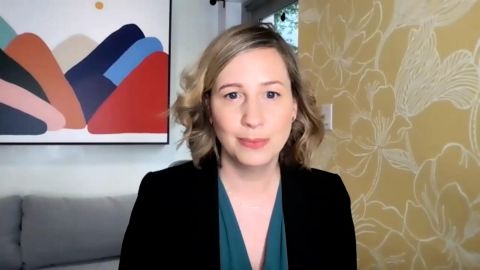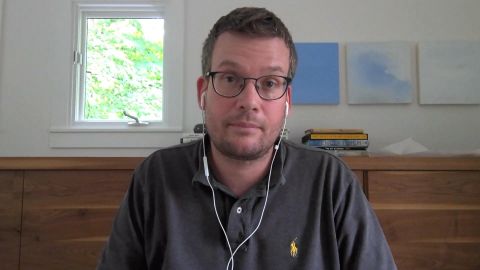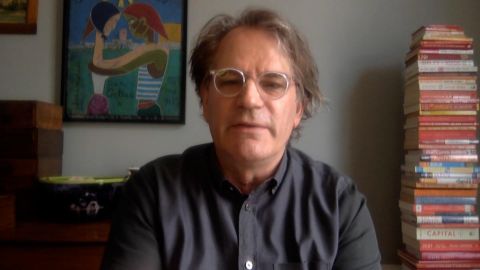Read Transcript EXPAND
BARTLETT SHER, DIRECTOR, “OSLO”: Yes, I — it’s a very strange and kind of a — perhaps very fitting for telling a great tale, but my daughter’s best friend in second grade was Emma (ph) Rod-Larsen. She was the daughter of Terje Rod-Larsen and Mona Juul. And I would sit and watch soccer matches, and Terje would tell me extraordinary stories of Middle East peace. And they caught my attention. Obviously, they were fascinating. I introduced him to the playwright J.T. Rogers, and away we went, and produced it at Lincoln Center Theater. And, somehow, it became a film.
BIANNA GOLODRYGA: What you were able to so masterfully do — and I was just so impressed by seeing both of your productions — is, you have kept the intimacy. There’s something special, obviously, about the stage setting. And you’re there in a room and you’re just focused on these characters, as they did in real life, just spend most of their time, hours, in one room, in one setting. Obviously, you have a bigger budget. You have many more creative opportunities in the film. And yet you chose to really stick to that form, that small intimate setting. Why did you do that? And explain the significance you were trying to convey.
SHER: Yes, I mean, one of the advantages and what drew me to it to begin with is that it’s so well-matched for theater. Theater — why do we even go to the theater? We go because we can experience conflicts, intimacies. It’s perfectly matched for the experience of actual dialogue, of actual communication. And so, in the play, we emphasize that. But I think it was especially possible in a film, where we could take people to these extraordinary locations, put them in a room together, and move through these very, very complex, complex questions, because I think, when we hear about them on television, we watch them, we don’t really experience human beings, an actual Palestinian and an Israeli in a room together working out a difficult problem.
GOLODRYGA: And even in — quote, unquote — “modern times,” it’s still baffling, I think, to many people when you hear these exchanges, like that “You’re my first Jew” or the first time I have ever met or spoken with a Palestinian, given how closely they live with each other, and given the globalness of the world that we are in right now. And you capture that really well in describing the relationship buildup, the trust. And I want to play a scene from the film where you have the Palestinian representative, the PLO representative, who’s also walking in the woods in Norway, with the Israeli representative. Take a listen.
(BEGIN VIDEO CLIP)
UNIDENTIFIED ACTOR: My daughter says, with me, passion is another word for pigheaded. She says: “Papa, all you care about is being right.” I say, Maya, if a man does not fight for what he believes, who is he? Maya?
UNIDENTIFIED ACTOR: Maya?
UNIDENTIFIED ACTOR: Yes, my daughter.
UNIDENTIFIED ACTOR: My daughter is named Maya, my youngest. She’s the light of my life.
About This Episode EXPAND
Susan Glasser; Fintan O’Toole; Bartlett Sher; Kathleen Kingsbury; John Green
LEARN MORE



